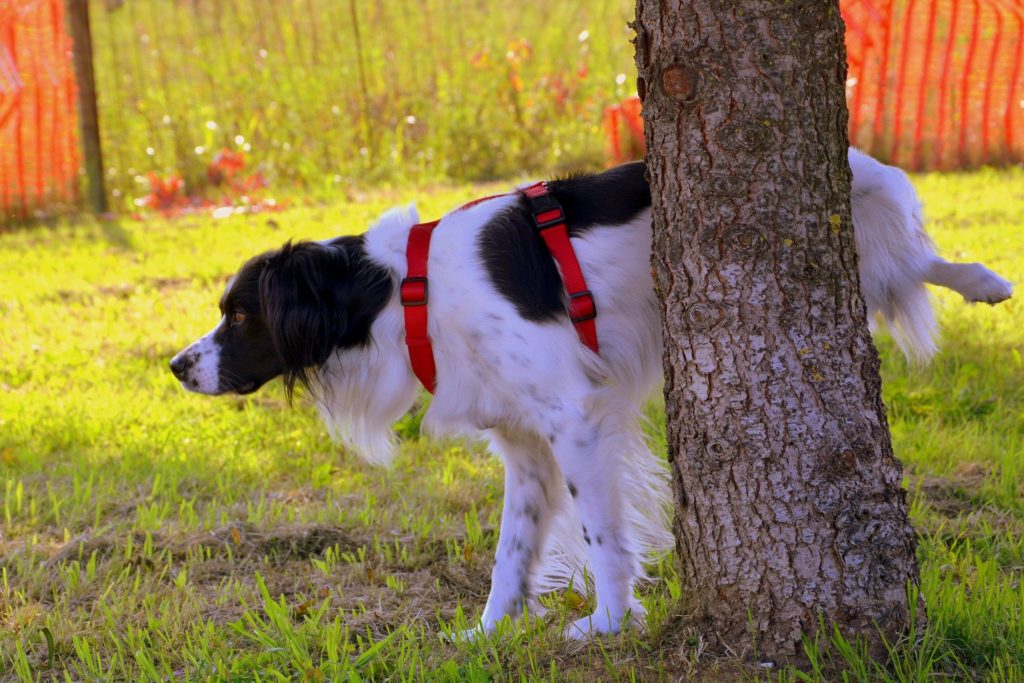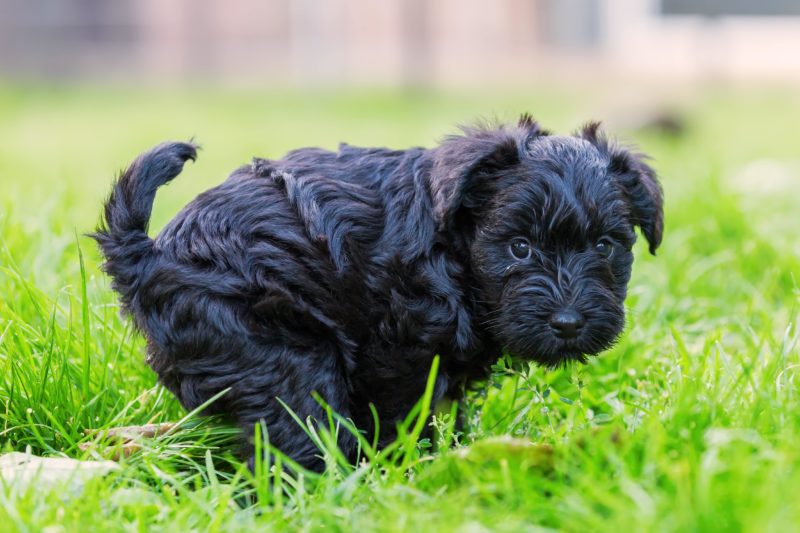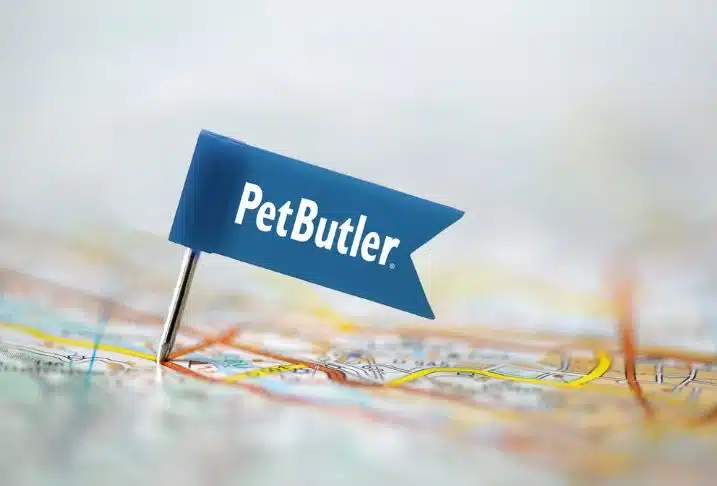One of the biggest challenges new dog owners face is overcoming a puppy’s most natural instinct: elimination, AKA peeing and pooping. As it turns out, dogs are not born with the understanding of where to relieve themselves all the time – that knowledge needs to be taught. Housetraining, also known as potty training, is a long but achievable undertaking that should be your number one priority after adopting a pup. It’s easier to teach a dog when it’s younger, and it helps your house stay that much cleaner.
Starting Early
Housetraining should be started once a puppy is around 10 weeks old – after it learns how to control its bladder and really start a schedule. The process can take anywhere from 4-6 months, although in special cases it can last up to a year or more. The more adamant you are about creating a schedule and sticking to the guidelines, the faster your dog will understand his/her expectations. Timeliness is also dependent on the size of your dog (smaller dogs need more trips outside and therefore adapt more quickly) as well as how receptive your dog is to training. Some puppies just take longer to learn where the toilet is, so stay positive and remind yourself that accidents happen all the time. You got this!
Control the Puppy’s Potty Space
The first general rule of potty training is to limit a puppy’s space. Control the environment as much as possible and always be attentive to your dog’s needs. Most of the time, your pup will show you when it needs to go. This is often indicated by behaviors like sniffing, circling, barking, and whining. If you can’t be around to supervise, make sure that you have a someone else around or put your dog in a crate. Crates discourage puppies from eliminating inside the house, and they’re helpful for extended periods away from home. That said, a puppy should never be left alone for more than 3-4 hours, especially within the first few months. If a dog is eliminating inside their crate, change some of the crating factors or stop using this method entirely. Tolerating bad habits will be very counterproductive.
Set a Potty Schedule
Another housetraining rule is to set a schedule. The more consistent the schedule, the more consistent the training. Puppies need to be taken outside hourly and always after eating or drinking. While most pups can hold their waste for a couple hours, it’s best not to test their limits. Repetition is the key to obedience, after all. For nighttime, try to be as quiet as possible if your dog needs to go; the less commotion caused, the less they’ll want to play around afterwards. Minimize these nightly trips as much as possible and take away their water bowl 2 hours before bedtime.
Reaffirming the Positive Potty Experience
When taking your dog outside, it’s important to keep a close watch. Putting them on a leash, even in a backyard, is good for positive association, familiarity, and, once again, control. Use a verbal cue like “potty” before they go and reward them afterwards with either treats or playtime. Make sure that you reward them outside, as soon as possible, but only after they have completely finished their business. This is important for avoiding accidents and speeding up their bathroom breaks later on.
As far as location goes, at first, bring them to the same spot every time. Their previous scent will prompt elimination again and reinforce the training. Once a puppy is more experienced with this idea, try and take them around to different outdoor spaces. They need to be comfortable with more than just one area.
Other points to remember include…
- Minimizing or Removing Potty Pads – Dogs associate these pads with carpeting, which can confuse puppies and prolong their training.
- Using Enzymatic Cleaners – They clear odors more effectively, so dogs won’t think about repeating their surprise in the same place.
- Consulting a Veterinarian – If your dog has repeated training issues, vets can offer extra advice and ensure that medical problems aren’t causing any complications.

Potty Training with Adult Dogs
All these ideas also apply for older dogs who either need to learn or relearn these habits. While training an adult dog might take longer and be more difficult, it’s fundamentally the same process. Be rigid with your limitations and scheduling, and they’ll come along just fine.
Lastly, there will be setbacks. Potty training is not easy. No matter how frustrating it can be, remember to never punish your dog in difficult moments. Discipline is important, but it’s wrong to make your dog afraid of you. If you happen to catch your dog in the act, clap loudly to signal a bad behavior and try to interrupt what’s happening. As per usual, if you can bring your puppy outside and finishes there, still give them a treat. Best of luck!

